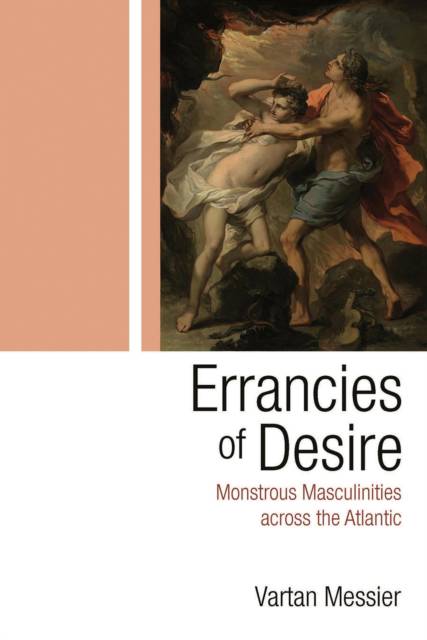
- Retrait gratuit dans votre magasin Club
- 7.000.000 titres dans notre catalogue
- Payer en toute sécurité
- Toujours un magasin près de chez vous
- Retrait gratuit dans votre magasin Club
- 7.000.000 titres dans notre catalogue
- Payer en toute sécurité
- Toujours un magasin près de chez vous
36,95 €
+ 73 points
Format
Description
Social commentators, psychologists, and journalists all point to the idea that in the new millennium, traditional masculinity is in crisis. In contemporary film and literature, this predicament is often portrayed as a problem of desire--particularly, heterosexual desire. Male libido, it appears, is especially vicious when it is misguided. Yet the genesis of this problem is not consistently diagnosed. While some texts may situate it in the unbridled expression of human sexuality and its associated discourses, others contend it is the perverse result of popular constructions of sex and gender.
Addressing this conundrum, Errancies of Desire focuses on the intersections of phallocratic violence and masculine identity in contemporary works of fiction across three subcontinents: North America, Western Europe, and sub-Saharan Africa. In doing so, Messier details the ways in which male desire is predicated on mediated forms of predatory and misogynistic sexuality that cross national and cultural divides. Employing a comparative methodology, he interrogates common perceptions of national differences and masculine identities grounded in historical specificity. Errancies of Desire effectively argues that when associated symptoms of violent and sexist behavior are institutionalized and misguidedly construed as a masculine norm, all men can become monsters.Spécifications
Parties prenantes
- Auteur(s) :
- Editeur:
Contenu
- Nombre de pages :
- 208
- Langue:
- Anglais
- Collection :
Caractéristiques
- EAN:
- 9780815637875
- Date de parution :
- 15-11-22
- Format:
- Livre broché
- Format numérique:
- Trade paperback (VS)
- Dimensions :
- 152 mm x 229 mm
- Poids :
- 299 g







